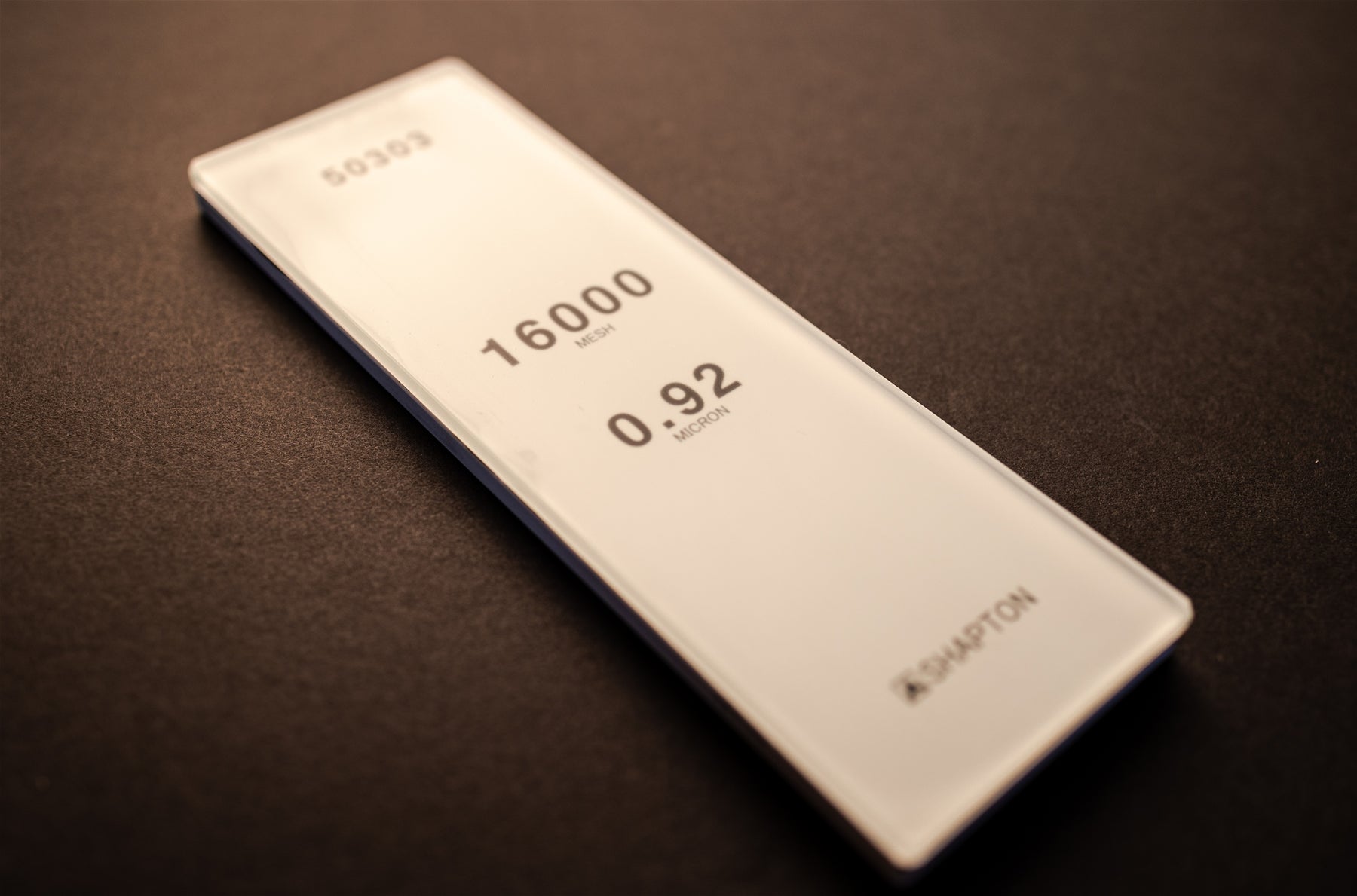This Level of Sharpness Isn't For Everyone

This Level of Sharpness Isn't For Everyone

"He wondered if something could be so sharp that it began to possess, not just a sharp edge, but the very essence of sharpness itself, a field of absolute sharpness that actually extended beyond the last atoms of metal." – Terry Pratchett, Reaper Man.
Here, we call it The Quest for Ultimate Sharpness. It’s a calling that speaks to a select few. Everyone likes a sharp tool. You’ve probably got a ton of things that are sharp. That new pocket knife, fresh out of the packaging with its untouched edge, is sharp. But you’re one of the select few. Sharp is just the beginning.
You know that really sharp is within your grasp. That factory edge is fine. If all you’re doing is opening packages or roughly chopping veg, sharp works. Really sharp is where tools start to sing. It elevates an inexpensive chef’s knife to your favorite kitchen tool. It makes that 80-year-old chisel slice end grain better than anything fresh from the hardware store. Really sharp comes from your hard work. Putting in the time and the effort to make sure your tools produce the results you demand. It makes those tools yours. Putting a really sharp edge on a tool is an achievement. Something to be proud of. But you’re still left with a feeling that something more is possible.
Slicing paper is so last year. Your left arm is already bereft of hair. You’ve got a handful of tools with that really sharp edge. You’ve put in hours of use with these tools. You know what they can do. You know the kind of edge they deserve. Stopping at really sharp is a disservice to these special tools. That hand forged chef’s knife. Your chisel set that was handed down to you from your grandfather. The belt knife which you trust your life in when you step into the backwoods.
You have a need to get tools really, really sharp. You have tools that need to be that sharp. Deserve to be that sharp. You wouldn’t be this deep into an article about a 16,000 grit water stone if that wasn’t the case. Folks who are content with 'just sharp' didn’t get past the headline. Those happy with really sharp left after I started writing about singing tools. But you’re still here, taking one more step along your quest for ultimate sharpness.
A 16,000 grit water stone. That’s a lot of grit. Rather, it’s very small grit. 0.92 micron. I feel like something that small needs a little context. 70 microns is about the width of a human hair. 40 microns is roughly the smallest thing you can see without magnification. A red blood cell is 5-8 microns across. Lactobacillus, a probiotic bacterium that lives in your digestive tract and is sometimes added to yogurt, is about 0.6 – 0.9 micron wide. That’s the kind of scale we’re talking about.

The Shapton 16,000 GlassStone is printed on the underside with the grit and micron rating.
16,000 grit is a fantastic capstone to any sharpening process. You’re already getting really sharp tools with your process. I’m guessing you’ve got at least one stone under 500 grit to repair damage and quickly raise a burr. I think you’re the kind of person to jump to 1000 grit. After that I think you have a 3000 grit stone and your finest stone is 8000 grit. I might be wrong, but I’m probably not far off. With your current setup, 8000 grit will give your bevels an almost mirror finish. The 16,000 grit? True mirror polish.
The abrasive is a modern mix for taking on modern steel alloys. That CPM-10V pocketknife you bought? Sounded great when you added it to your cart. Then you tried sharpening it. Powdered steel concoctions have a frankly ridiculous wear resistance. So Shapton has put a lot of thought and effort into designing this stone to handle these steels. The whole GlassStone HR line works great on high-resistance steels. And it’s not just the abrasive they’ve put a lot of thought into.
The 16,000 grit, and the others in its series, have a glass backing plate that gives the line its name. The 5mm glass plate provides an exceptionally flat base. Great for stable sharpening. And it does something more. Something that makes this stone a better investment than many options out there.
When buying a stone that gets you that much closer to your goal of ultimate sharpness, you’re going to want to make sure you get to use it all. Shapton’s decision to mount these stones directly onto a glass plate lets you do that. Even when you’re down to a fraction of a millimeter of abrasive surface, it will still be ready to take your really sharp tools to really, really sharp. After all, isn’t that what we all want?
Now that you’re ready to get your tools really, really sharp, you can purchase the Shapton 16,000 grit stone here. If you’ve felt the itch, but you’re just starting your Quest for Ultimate Sharpness then this article on recommending stones for beginners is a great place to start. If you’ve got specific questions you can contact us via email, or call us to talk directly to one of our Sharpening Experts.

